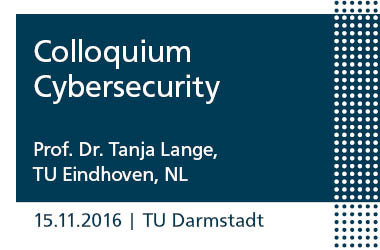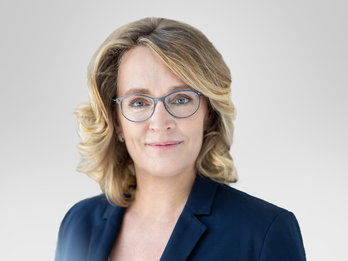Events

Colloquium Cybersecurity: Practical Post-Quantum Cryptography
Location: TU Darmstadt | Mornewegstraße 32 | Raum 5.3.01 | Darmstadt
Speaker: Prof. Dr. Tanja Lange, TU Eindhoven, NL

Abstract:
Public-key cryptography is a crucial part of modern cryptology. It is the foundation of cryptographic key exchange and electronic signatures, enabling secure Internet applications, cloud storage, phone calls, etc. At its core are intensively studied mathematical problems that appear to be difficult, such as factoring RSA integers or computing discrete logarithms on carefully chosen elliptic curves. Research in public-key cryptology combines working in disciplines of mathematics such as number theory, algebraic geometry, and algebra with the study of algorithms and complexity in theoretical computer science and real-world implementations in electrical engineering and applied computer science.
Worldwide companies and government agencies work on building large, scalable quantum computers, e.g., the NSA has budget dedicated to “Penetrating Hard Targets”, including an ongoing effort to build a “cryptologically useful quantum computer”, which (if successful) will render all of today’s Internet public-key cryptography obsolete. On the defense side, research in post-quantum cryptography has grown over the last decade, now leading to recommendations, such as those from the PQCRYPTO project, for systems that remain secure under attacks by quantum computers. However, these systems put significant burdens on the users in terms of bandwidth and computing power and are still insufficiently analyzed.
A new generation of efficient post-quantum cryptographic solutions is needed, along with a detailed study of their security and suitability for secure implementations. This talk will highlight some recent results and ongoing work on practical post-quantum cryptography, including a new lattice-based encryption scheme and side-channel attacks on lattice-based cryptography.
